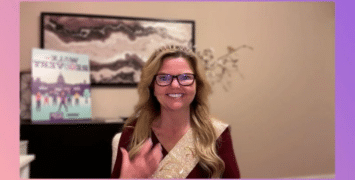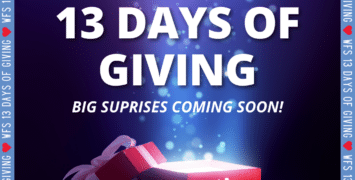Your cart is currently empty!

Monday Thoughts 11/25/2019

To heal a wound, you need to stop touching it.” ~~unknown
“Moving on to the future without letting go of the past is like tying your arm to a post while catching a train.” ~~anonymous
“Never regret. If it’s good, it’s wonderful. If it’s bad, it’s experience.” ~~Victoria Holt
______________________________
#9 The past is gone forever.
No longer am I victimized by the past. I am a new woman.
______________________________
Identifying and understanding attachment is the initial action into letting go of the past. Statement #9 is a favorite for many women just for that reason. I had no clue that clinging to the past was causing continuous unease. Simply unaware of just how tightly I had been holding onto past ideas, situations, conclusions, and even material possessions, kept me stuck in the past.
Here is a small favorite Zen short from a book by Jon J. Muth which encompasses Statement #9 brilliantly:
Two traveling monks reached a town where there was a young woman waiting to step out of her sedan chair. The rains had made deep puddles and she couldn’t step across without spoiling her silken robes. She stood there, looking very cross and impatient. She was scolding her attendants. They had nowhere to place the packages they held for her, so they couldn’t help her across the puddle.
The younger monk noticed the woman, said nothing, and walked by. The older monk quickly picked her up and put her on his back, transported her across the water, and put her down on the other side. She didn’t thank the older monk, she just shoved him out of the way and departed.
As they continued on their way, the young monk was brooding and preoccupied. After several hours, unable to hold his silence, he spoke out. “That woman back there was very selfish and rude, but you picked her up on your back and carried her! Then she didn’t even thank you!
“I set the woman down hours ago,” the older monk replied. “Why are you still carrying her?”
While this is a powerful little parable, it is important to understand that letting go or forgiving does not erase or eliminate what happened in the past, it simply offers a new perspective. It is refreshing to let go and live your own story instead of being defined or held captive by the past. This can be a helpful tool to practice this week if feelings of unease arise as the Thanksgiving holiday approaches.
Hugzzz
Karen
~~~~~~~~~~~~~~~~~~~~~
Hi 4C Women.
I started looking through old photos and found myself staring into my past with both gratefulness and amazement. Grateful for many of the joyful times I experienced and amazed that I made it through some excruciatingly difficult times. After all these years, I understand that I was mostly angry at myself for my choices, leading me to hang onto regrets. In order to heal from the past, I needed to first forgive myself. Statement #9 was telling me that I hold the key to unlocking the pain of the past. If I was to truly heal, I had a lot of work to do in learning to release the past, to forgive myself and find the lesson. I initially disliked hearing that I had to see a lesson within the pain. I was way too angry and if I let go of the pain, I’d had to face my part in my choices, take responsibility! That didn’t work too well with my blame game. I realized that my anger, disappointment, loss, sense of powerlessness was no longer a protection from rejection or hurt but denying myself the ability to build healthy relationships and trust my instincts to make different choices. If I didn’t find a way to heal, I would always be giving my power away.
I often look back on a message that Nancy Cross wrote about the heavy burden of carrying old baggage. The baggage of envy, anger, sadness, regret, guilt, shame and so much more. She expressed it so well when she said that when we find we have too much to carry, we look for a cart. For her, that cart was her addiction. The question that she posed was, “Do you know who packed your bags?” We have a choice in sobriety to repack those bags, getting rid of the “shoulds”, the “cant’s” and “I wish I would haves.” And while the hurtful past arises as a natural process, we have the choice to acknowledge it and let it “briefly” visit. Then we make another choice to not be victimized by it, the action part of Statement #9.
Perhaps you can ask yourself as you reflect on the pain of the past, are you stronger for it? Wiser? More compassionate towards yourself for your ability to survive and make healthier choices? Have the lessons gained from the past created inside changes that sustain you and honor you in the present?
Bonded in understanding that forgiveness means your present happiness is more important than your past suffering, a 4C sister



